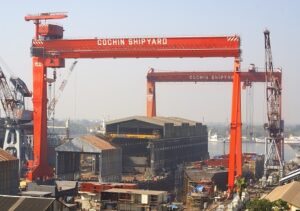
As the IPO of Hyundai Motor India prepares to make its debut in the bustling Indian market, scheduled for October 15-17, 2024, investor enthusiasm is tempered with caution. Set against a price band of ₹1,865 to ₹1,960 per share, this initial public offering aims to become the largest in Indian history, surpassing even the high-profile LIC IPO. However, a series of challenges are raising doubts among potential investors about the timing and viability of this major move.
A Historical Context
Hyundai Motor India, a subsidiary of the South Korean automotive giant, has been a key player in India’s automobile industry since 1996. As part of the Hyundai Motor Group, which also includes Kia, the company ranks as the third-largest auto manufacturer globally, with impressive sales figures of 7.3 million vehicles in 2023. Known for its innovation and focus on premium vehicles, Hyundai has established a solid reputation in the passenger vehicle segment.
Rising Concerns in the Market
Despite its strengths, Hyundai’s path to a successful IPO is fraught with challenges. The company has witnessed a decline in its market share in the PV segment, dropping from 17.5% in FY20 to 14.6% in FY24. This trend raises concerns about its competitive edge in a market that is becoming increasingly crowded, with new players emerging and existing competitors ramping up their game.
Additionally, recent reports from the Federation of Automobile Dealers Associations (FADA) highlight troubling figures: retail sales in the domestic automobile sector fell by 9.26% year-on-year last month. Such declines could indicate broader economic issues that may impact consumer purchasing power and demand for new vehicles, further complicating Hyundai’s growth prospects.
Valuation Challenges
The IPO’s pricing also raises eyebrows. Hyundai’s P/E ratio of 26.7 for FY24 positions it competitively against peers like Maruti Suzuki, which stands at 26.83. However, this valuation comes amidst a backdrop of declining market share and uncertain economic conditions, making some investors wary. The need for the company to comply with regulatory requirements adds another layer of complexity, as promoters will need to reduce their stake from 82.5% to 75% through an Offer for Sale (OFS).
Looking Ahead
As Hyundai Motor India readies itself for one of the most significant IPOs in recent history, potential investors face a pivotal decision. The allure of investing in a well-established brand is strong, yet the challenges outlined could lead to a more cautious approach.
In conclusion, while Hyundai Motor India has the pedigree and market presence to make a significant impact on the Indian automotive landscape, it must navigate a series of hurdles before it can claim success in its IPO journey. As the subscription period opens, stakeholders will be watching closely to see if the excitement translates into solid investor confidence, or if the current doubts hold back what could have been a landmark public offering. The coming weeks will be critical as Hyundai seeks to turn this challenging road into a triumphant one.




